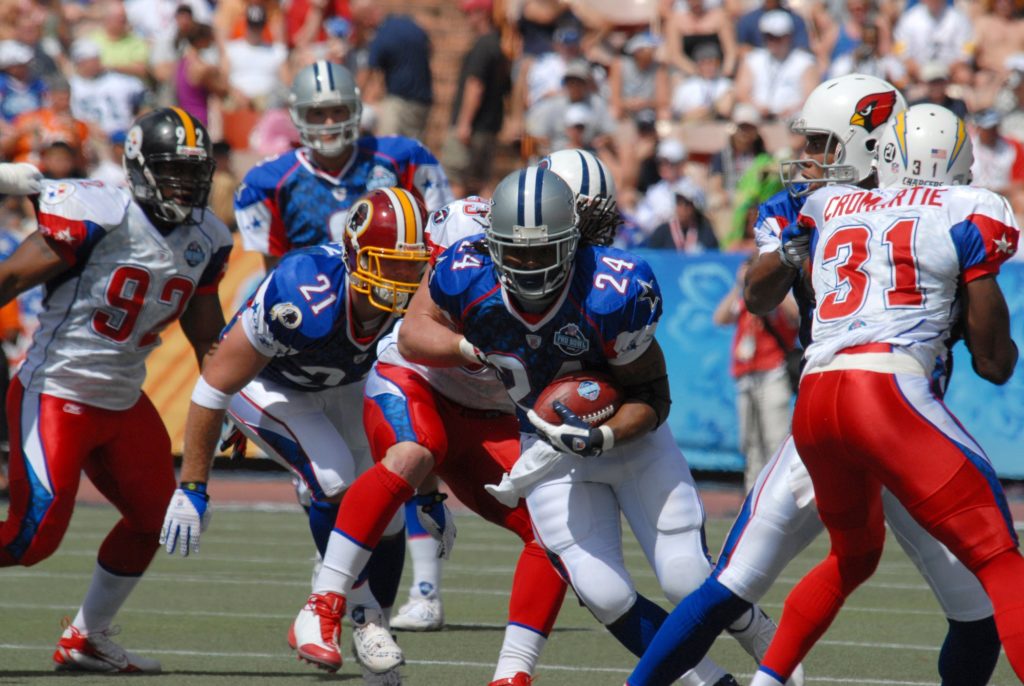How do sports teams develop loyal fans?
Tokyo is about to host the Olympic Games. Although COVID-19 restrictions won’t allow fans to pack stadiums this year due to lack of space, the event will be watched by people all over the globe.
Ninety percent were able to tune-in to past Olympics from people who had access. This was 2/3 of the people living on the planet in 2008.
Many fans who were able to attend past events can wear the colors of their country, much like Mel Gibson’s rebels. They cry in despair and excitement. To travel the world, many pay thousands of dollars.
How can sports motivate, engage, and delight people? Can businesses instill the same enthusiasm and loyalty in their customers as sports?
It is possible to harness the psychology of sport, which makes fans do insane things for the team’s sake, and turn them into regular users. Innovative companies are creating loyal customers by studying human behavior. These are just a few examples from the psychology of sport and companies that have learned how to profit from these same principles.
This Could Be the Year
The Chicago Cubs fans are a great example of customer loyalty. The team is suffering from the “longest drought in North American sports” – 104 years without a World Series victory. Despite the 100-year drought, Forbes ranked the team as the fourth most loyal fan in baseball.
Why are Cubs fans so loyal? Why do they keep coming back year after year, even when it’s losing? Sports columnists and diehards may provide bullet points explaining why “this year is our year”, but the real answer lies in two cognitive tricks that can sometimes produce irrational behavior: hope and variable rewards.
It’s evident that hope is a powerful motivator, from Barak Obama’s famous campaign poster to Pepsi’s most recent campaign ad. BJ Fogg, Stanford University’s Persuasive Tech Lab, says that the pursuit of hope is a major motivator for human behavior.
Every sports fan knows the power of optimism, but few realize the impact variable rewards have on the brain. Random reinforcement is a classic behavioral mechanism used in video games and slot machines. It kicks the brain’s dopamine systems into high gear. The prospect of finding a reward, win, or prize is enough to keep us captivated. It’s an insatiable search for that ultimate satisfaction.
Sean Markey, a 29-year old special education teacher from Salt Lake City, is his name. He also uses Quora as a social question-and-answer app. Markey gets a steady dose of stimulation by scrolling through his Quora stream. He cannot resist Quora’s varied rewards.
Sean is like a Cubs fan who holds on to the promise of a championship win for one more year. He can’t help but glance at his Quora feed, looking for that tempting answer. Markey stated, “I don’t know what kind of questions I will get.” Markey said, “Will there ever be a question that could fundamentally change my worldview?” It’s hard to know but I won’t be surprised if I don’t. I find myself returning to the site several times per day.”
The better the game, the more you pay
Jay Acunzo is also addicted to Quora, but more to his favorite team, the New York Knicks. The 26-year old says that no matter what, he will always be a fan. He spent hundreds of dollars last year on tickets and gear, as well as hundreds more for paraphernalia.
Xandra Kredlow is Acunzo’s girlfriend for over three years. The Knicks are a money-sucking distraction. Xandra doesn’t care much about assists and rebounds. While she will occasionally attend a game, she does not care about the score or the outcome. She goes to games to spend time with her family, not to follow the action on court. What is the secret to how people feel about sports?
Two other psychological phenomena explain why certain people are more interested in fandom than others. This cognitive cocktail’s first component is called an escalation or commitment bias. Research shows that people are more likely to persist with a behavior or hold onto a particular view if they put in more effort.
The effort begins early in your life. The desire to be like the sports heroes they admire is a natural instinct for children. Each practice requires a little bit of effort, which increases the enjoyment of the sport. Although very few children go on to play professional sports, many others continue to enjoy the same childhood joy. As they get older, fans begin to invest more in the sport with their time and money. There is good reason to believe that fans love their team more if they spend more.
Cognitive dissonance theory could help explain why fans’ enthusiasm increases with effort. Fans may feel they are paying more for the team than what they enjoy, which can lead to a mental conflict. This discrepancy can be resolved by loving the team enough that the costs are justified.
From Being to Doing
The reason we become addicted to sports is partly because of our increased commitment. But there’s another characteristic that helps us make lifelong friends. Our self-identity is shaped by sports. Research shows that how we perceive ourselves can have a significant impact on our behavior. People who completed a survey about being a voter were more likely to vote than those who took the same survey on voting. The simple change in the survey from a verb that defines an action (voting), to a noun that defines the self (voter) dramatically increased turnout.
People change how they see themselves and begin to act in accordance with this belief. Real fans wear team colors. Real fans watch every game. True fans are loyal until the end.
People have different perceptions of what it means to be a football fan. This is why not everyone shows up at work wearing face paint and team jerseys. The way we define ourselves has an impact on our actions, from what sports we watch to how we use products and services. Many companies use the concept of escalations in commitment and self-image shaping as a way to increase customer engagement.
Apple has brilliantly defined what it means for a person to be a fan with its products. This was first demonstrated by their “Think Different” campaign, and then later in the “Get a Mac!” commercials. Apple combines being innovative and young with describing its PC competition as the contrary. Apple made its products look like real people, “I’m an iPhone.” It made the metaphor clear. Apple uses escalations in commitment to try to take over all screens, including TVs and phones.
StackExchange is another company that uses escalations in commitment and self-image shaping to create super users. Although the site was originally created to answer technical questions, it is now a vibrant forum that hosts hundreds of discussions on hundreds of subjects. Each day, the site receives 5,600 questions from visitors. How does StackExchange manage to reduce the number of questions and provide quick answers? It makes its users do all the work.
Every question that is asked, answered and promoted further commits the user towards the system. Simple tasks like clicking up to vote and expressing satisfaction with an answer can quickly turn into complicated and time-consuming jobs. This kind of work is normally done by employees in other companies. StackExchange’s top users manage the community and spend hours managing content every day, all while not being paid a dime.
Jeff Atwood, cofounder of StackExchange says that “our most active members view themselves as more than users.” They see themselves as owners.” Atwood adds, “When users view their responsibility for the site’s quality, their usage explodes.” This is where StackExchange starts to transform users’ self-image. These owners view themselves as having a special responsibility for the site, just like sports fans believe their loyalty is important to the team. Participation becomes part of who they really are and not just what they do.
Sports are bizarre
It’s useful to ask “why?” whenever we see unusual human behavior. Spectator sports are so common in our lives that sometimes we fail to appreciate their ability make us do extraordinary things. These behaviors are rarely seen outside of the context of organized competition.
It’s not unusual to dress up in tribal-like attire and pay top dollar to be able watch strangers play a game for your amusement. These peculiar circumstances are a great opportunity to learn how to make better products and live better lives.
Sports are fundamentally human and, more importantly, fun. It’s not just a strategy to make products more interesting, but a way to improve customer satisfaction. People are happy when they watch sports. Fans go to the games to be happy. Even if their team loses, they are still happy enough to return for the next game.










